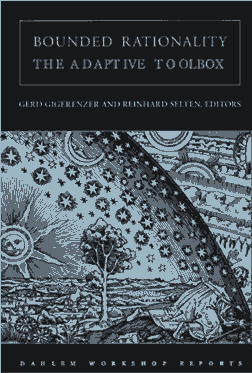« November 2004 | Main | January 2005 »
December 20, 2004
Society for Consumer Psychology 2005 Winter Conference
SCP 2005 WINTER CONFERENCE
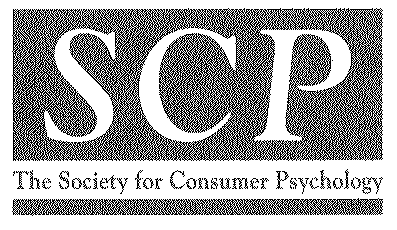
The Upcoming Society for Consumer Psychology SCP winter conference will be held from Thursday February 24th to Monday the 28th 2005 at the TradeWinds Island Grand Resort in St. Pete Beach, Florida.
"The Society for Consumer Psychology represents the interests of behavioral scientists in the fields of psychology, marketing, advertising, communication, consumer behavior, and other related areas. Some members of the Society are mainly interested in generating applied knowledge to solve specific marketing related problems, while others focus on generating basic knowledge to contribute to theoretical and conceptual foundations of consumer psychology. The Society encourages all members to share their knowledge and contribute to the discipline of consumer psychology as a whole through contributions in conferences, journal articles, and book chapters". -From the Society for Consumer Psychology Home Page
To register for the winter conference go to the SCP home page and click on "Winter 2005 SCP Conference Online Registration" or click here to link directly. A preliminary program for the SCP winter conference is availbale here or at the SCP home page.
Conference Chairs:
Anne Brumbaugh, Wake Forest University Home Page
Geraldine R. Henderson, Univerity of Texas at Austin Home Page
Conference Co Chairs:
Amar Cheema, Washington University in St. Louis Home Page
Scott A. Hawkins, University of Toronto Home Page
Joydeep Srivastava, University of Maryland Home Page
Posted by DSN at 08:28 PM | Comments (0)
December 13, 2004
How can somebody make a decision without all the facts? Well, there's actually no other way.
BOUNDED RATIONALITY: THE ADAPTIVE TOOLBOX by Gerd Gigerenzer and Rienhard Selten.
How do real people make decisions in an uncertain world? In the book Bounded rationality: The adaptive tool box, Gigerenzer and Selten (et al.) investigate the constraints of limited information and time upon human logic and reasoning in the decision making process. The authors view Bounded Rationality neither as the optimization of limited resources under constraint nor as a study of the failings of human reasoning capability.
QUOTES:
"Visions of rationality do not respect disciplinary boundaries. Economics, psychology, animal biology, artificial intelligence, anthropology, and philosophy struggle with models of sound judgment, inference and decision making. These models evolve over time, just as the idea of rationality has a history, a present and a future (Daston 1988). Over the last centuries, models of rationality have changed when they conflicted with actual behavior, yet, at the same time, they provided prescriptions for behavior. This double role-to describe and prescribe- does not map easily onto a sharp divide between descriptive and normative models, which plays down the actual exchange between the psychological and the rational (Gigerenzer et al. 1989). Herbert Simon's notion of bounded rationality was proposed in the mid-1950's to connect, rather than to oppose, the rational and the psychological (Simon 1956). The aim of this book is to contribute to the process of coevolution, by inserting more psychology into rationality, and vice versa."
"In a complex and uncertain world humans and animals make decisions under the constraints of limited knowledge, resources, and time. Yet models of rational decision making in economics, cognitive science, biology and other fields largely ignore these real constraints and instead assume agents with perfect information and unlimited time. About forty years ago Herbert Simon challenged this view with his notion of "bounded rationality". Today, bounded rationality has become a fashionable term used for disparate views of reasoning."
ABOUT THE AUTHORS:
Gerd Gigerenzer

Gerd Gigerenzer is Director of the Center for Adaptive Behavior and Cognition at the Max Planck Institute for Human Development in Berlin and former Professor of Psychology at the University of Chicago. He won the AAAS Prize for the best article in the behavioral sciences.
Reinhard Selten
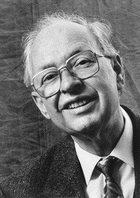
Reinhard Selten received his PhD in mathematics at the University of Frankfurt am Main. Reinhard Selten is Fellow of the Econometric Society, President of the European Economic Association, a Honorary Member of the American Economic Association, a Member of the Nordrhein-Westfälische Akademie der Wissenschaften, and a Foreign Honorary Member of the American Academy of Arts and Sciences. He is also a Honora Patrona Komitato at Universala Esperanto Asocio. His main areas of interest are Game Theory and its applications as well as Experimental Economics and the Theory of Bounded Rationality. In 1994 he won the Nobel Memorial Prize in Economics, together with John C. Harsanyi and John F. Nash.
Posted by DSN at 10:39 PM | Comments (0)
December 01, 2004
Is reading about the kettle the same as touching it?
DECISIONS FROM EXPERIENCE AND THE EFECTS OF RARE EVENTS IN RISKY CHOICE
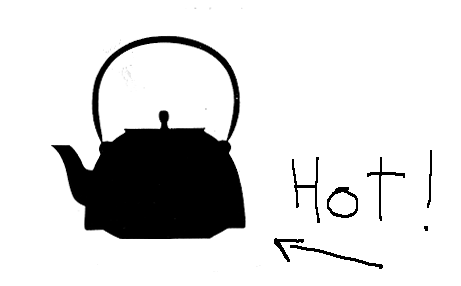
Studies of risky choice almost always examaine decisions made from descriptive sources of information, for example pie charts and frequency distributions. Nonetheless, people in the real world usually make decisions without descriptions and rely on personal experience. The studies described here indicate a discrepancy in choice behavior concerning specific rare events. Why do decisions made from descriptions seem to overweight rare events and decisions made from experience seem to underweight them? A recent study by Ralph Hertwig, Greg Barron, Elke Weber and Ido Erev investigates how the manner of information acquisition, whether from a descriptive source or from personal experience, can dramatically influence choice behavior.
Abstract:
When people have access to information sources such as newspaper weather forecasts, drug-package inserts, and mutual-fund brochures, all of which provide convenient descriptions of risky prospects, they can make decisions from description. When people must decide whether to back up their computer's hard drive, cross a busy street, or go out on a date, however, they typically do not have any summary description of the possible outcomes or their likelihoods. For such decisions, people can call only on their own encounters with such prospects, making decisions from experience. Decisions from experience and decisions from description can lead to dramatically different choice behavior. In the case of decisions from description, people make choices as if they overweight the probability of rare events, as described by prospect theory. We found that in the case of decisions from experience, in contrast, people make choices as if they underweight the probability of rare events, and we explored the impact of two possible causes of this underweighting-reliance on relatively small samples of information and overweighting of recently sampled information. We conclude with a call for two different theories of risky choice.
Quotes:
"Studies of human risky choice almost exclusively examine decisions from description. In a recent meta-analysis of all studies involving decisions between a two-outcome risky prospect and a sure thing (with equal expected value), Weber et al. (2004) found that all 226 choice situations called for decisions from description."
"Respondents in the experience and description groups faced structurally identical problems. Yet their choices were dramatically different. Differences in choices were consistent with the assumption that in decisions from experience, rare events had less impact than they deserved on the basis of objective probability (and in decisions from description, rare events had more impact than they deserved). Moreover, the underweighting of rare events in decisions from experience appears to be robust across experimental paradigms:"
"Reliance on small samples of experience not only plays a key role in decisions from experience but also contributes to perception of the world as less variable than it actually is... Although small samples have the result that decision makers explicitly and hence presumably also implicitly underestimate the probability of rare events, underweighting of rare events is likely to emerge in decisions from experience even if people can provide accurate explicit estimates of the probabilities."
"In decisions from experience, respondents need to update their impression of the options' attractiveness by combining newly sampled outcomes with their knowledge from previous draws. Such updating can give rise to recency effects (e.g., Hogarth & Einhorn, 1992), that is, to judgments in which recently sampled outcomes receive greater weight than earlier sampled ones."
"Not only probabilities and outcomes but many kinds of information can be learned through experience or description. Base rates, distributional information, and degrees of causal strength are a few examples. Thus, one might expect the way in which information is learned to influence cognitive processes in many domains. Indeed, in research on Bayesian reasoning, for instance, there is evidence that performance depends on whether base rates are directly experienced or symbolically described"
"In a study of foraging decisions made by bees, Real (1991) observed that "bumblebees under perceive rare events and over perceive common events" (p. 985), when the events are instances of food. To explain why bees' "probability bias" diverges from that observed in humans, real cited, among other factors, the fact that bees' samples from payoff distributions are truncated because of memory constraints."
About the Authors:
Prof. Dr. Ralph Hertwig

Ralph Hertwig is assistant Professor of applied Cognitive Science at the Institute for Psychology in the University of Basel. Hertwig has been a research scientist both in the Center for Adaptive Behavior and Cognition at the Max Planck Institute for Human Development in Berlin and at the MPI for Psychological research in Munich, Germany. In 1996 he Hertwig won the 1996 Heinz Heckhausen Young Scientist Prize of the German Society for Psychology. He recieved his PhD (Dr. rer soc.) Summa Cum Laude in Cognitive Psychology from The University of Konstanz in 1995.
Ralph Hertwig homepage
Greg Barron

Greg Barron is an Assistant Professor in the Negotiations, Organizations, and Markets Unit at the Harvard Business School. He came to HBS in 2003 as the CLER (Computer Lab for Experimental Research) Research Fellow in Business Administration. Greg received his B.A. in Psychology from Haifa University and his Ph.D. in Behavioral Sciences from the Technion, Israel Institute of Technology. Prior to obtaining his Ph.D. he worked at Elbit Systems Ltd. as an HR coordinator and at the Carmel Center for Groups as a certified group facilitator. Greg's primary research interests are in the field of decision making, focusing on the effects of economic incentives on repeated decisions.
Greg Barron Home Page
Elke Weber
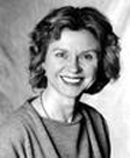
Elke Weber is a professor of psychology and Management at Columbia University. She recieved her PhD from Harvard University in 1984. Her research interests include Behavioral models of judgment and decision making under risk and uncertainty. She is also interested in psychologically appropriate ways to measure and model individual and cultural differences in risk taking, specifically in risky financial situations and environmental decision making and policy.
Elke Weber Home Page
Ido Erev
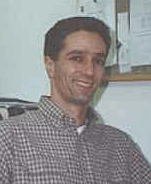
Ido Erev is a member of the William Davidson Faculty of Industrial Engineering and Management as a professor at Technion, Haifa, Israel. His primary research interests are cognitive psychology, Individual decision making under uncertainty, human judgment and subjective probability, behavioral implications of game theory, social dilemmas and attention control.
Ido Erev Home page
Posted by DSN at 06:49 PM | Comments (0)
